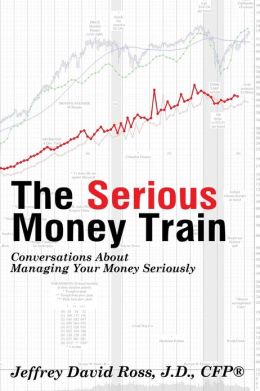
 As we approach the third anniversary of our firm’s transition to a fee-only Registered Investment Adviser, investment accounts are beginning to accumulate what I think of as bonus points. These bonus points derive from using the institutional-class shares we now recommend instead of the retail-class shares we used to recommend.
As we approach the third anniversary of our firm’s transition to a fee-only Registered Investment Adviser, investment accounts are beginning to accumulate what I think of as bonus points. These bonus points derive from using the institutional-class shares we now recommend instead of the retail-class shares we used to recommend.
By way of background, remember that when we transitioned accounts to TD Ameritrade we also converted the mutual funds that clients owned from either A-shares or C-shares to institutional shares. The primary benefit of transitioning to institutional shares is their lower cost since these shares pay zero compensation to advisers or brokers.
However, there is a secondary benefit that is beginning to accrue in client accounts that I call a “bonus” benefit. This benefit is that the institutional shares are out-performing their respective A-share or C-share counterparts by even more than their cost savings.
In other words, if the current ABC Fund- I share has a 1% per year lower expense factor than the ABC Fund-C share, clients would expect the I-share to out-perform the C-share by 1% per year. But, in fact, the I-share is out-performing by something greater than 1%.
These are “bonus” points, since they effectively offset at least part of the advisory fee we deduct from client accounts each month.
Below is a chart that illustrates what I mean, using actual mutual fund data from the funds that many of our clients actually own in their accounts. The period covered by the chart is June 30, 2011 through March 31, 2014, 2.75 years. Since I-shares are 1% less expensive than C-shares, you would expect to see that they out-perform their C-share counterpart by 2.75% over this period.
However, in fact, each of the four funds out-performed by more than the expected 2.75%. The “bonus” points ranged from .75% to 1.59%. As I mentioned, these “bonus” points may be considered a direct offset of any advisory fees charged to the account.
|
Retail Fund Performance |
Institutional Fund Performance |
Institutional Performs Better By |
Institutional Bonus Points |
|
Royce Penn Mutual C 35.14% |
Royce Penn Mutual I 39.10% |
3.96% |
1.21% |
|
IVA Worldwide C 15.83% |
IVA Worldwide I 20.17% |
4.34% |
1.59% |
|
Davis NY Venture C 40.67% |
Davis NY Venture I 44.35% |
3.68% |
.93% |
|
Capital Income Builder C 24.85% |
Capital Income Builder F2 28.35% |
3.50% |
.75% |
Source: tSMI©
Review of Target Strategy Cash Options
Over the past few years we’ve had the pleasant experience of harvesting profits many times over for clients with Serious Money Target Strategies in place. This has resulted in sizable buildups of cash in what we call our Lifestyle Account.
Some clients have now harvested more cash profits than they are expecting to use in the near future, and they wonder whether it still makes sense to continue to harvest profits as the market continues to make new highs.
The answer is yes, for several reasons: 1) the Target Strategy is a discipline which automatically sells at higher prices, which is the second half of everyone’s investment mantra “buy low sell high”; 2) there will be a time when cash will be the best performing position in your portfolio; and 3) having extra cash means you will be able to “buy low” during or after the next market correction.
There is an old investing maxim: “No one ever went broke taking profits.”
FORWARD LOOKING STATEMENT DISCLOSURE
As a Registered Investment Advisor, one of our responsibilities is to communicate with clients in an open and direct manner. Insofar as some of our opinions and comments are based on current advisor expectations, they are considered “forward-looking statements” which may or may not be accurate over the long term. While we believe we have a reasonable basis for our comments and we have confidence in our opinions, actual results may differ materially from those we anticipate. You can identify forward-looking statements by words such as “believe,” “expect,” “may,” “anticipate,” and other similar expressions when discussing prospects for particular events and/or the markets, generally. We cannot, however, assure future results and disclaim any obligation to update or alter any forward-looking statements, whether as a result of new information, future events, or otherwise. Further, information provided in this letter should not be construed as a recommendation to purchase or sell any particular security.
The Planner’s Edge®: TM & copyright 2013. All rights reserved. No part of this publication may be reproduced in any form, or by any means whatsoever without written permission from the publisher. Serious Money TalksTM is a trademarks of The Planner’s Edge®. If you would like further information about the services of The Planner’s Edge®, please call 206-232-4500 or 1-800-735-7302. Email: info@theplannersedge.com.

